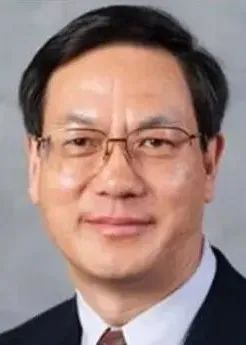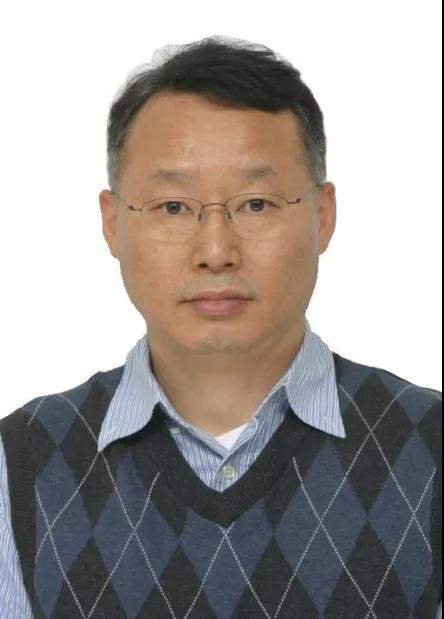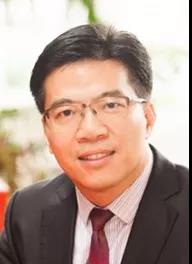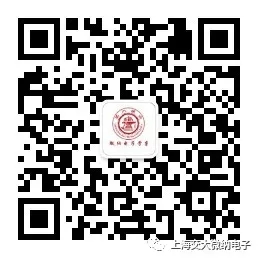几个世纪以来,纳微世界引起了人们极大的兴趣。这些基本发现以及科学和自然之美吸引了全世界的目光。在此特殊时期,Nano-Micro Letters发起和组织了本次国际网络研讨会。在这次研讨会中,很荣幸的邀请到了五位顶尖科学家分享他们对纳微世界美学及基础科学问题的理解以及他们在各自领域的重要发现。希望所有的观众,无论是科学界的研究人员还是社会大众,都能从研讨会中受益。同时,非常感谢科研云和能源学人,为本次研讨会提供了技术及推广等方面的大力支持。
 Nano-Micro Letters International Webinar Series 纳微快报国际网络研讨会
Nano-Micro Letters International Webinar Series 纳微快报国际网络研讨会
Nano-Micro World Beauty & Fundamentals
纳微世界美学与基础科学问题
一、会议详情
【会议主题】能源研究与可持续发展
【会议时间】2020年6月6日 9:00-12:20 GMT+8
【参与方式】会议免费面向全球观众开放,采用英文进行交流与报告。五位特邀专家将做相关学术报告并在线回答观众的问题。期刊助理编辑、新加坡南洋理工大学陈博博士将对Nano-Micro Letters 进行介绍。
【直播链接】https://live.bilibili.com/h5/21963219或者扫描下方二维码,进入Bilibili直播间

二、会议流程
- 09:00-09:10
Guest/HostWelcome and Opening Remarks
- 09:10-09:45
Prof. Zhong Lin Wang BINN, CAS, China; GT, USATriboelectric Nanogenerators for Self-powered Systems and Large-scale Blue Energy
- 09:40-10:20
Prof. Hyoyoung LeeSKKU, South KoreaPhase-selective Disorder of Two Phase-mixed HeterogeneousTiO2 for Energy and Sustainability
- 10:20-10:55
Prof. Yanglong Hou PKU, ChinaConstruction of Hybrid Anode Materials for Novel Battery Systems
- 10:55-11:10
Dr. Bo Chen NTU, SingaporeAssistant Editor Nano-Micro LettersNano-Micro Letters and Nano-Micro World–Beauty and Fundamentals
- 11:10-11:45
Prof. (Eddie) Shanqing Zhang GU, AustraliaFunctional Binders for New Generation Energy Storage Devices
- 11:45-12:20
Prof. Zhichuan J. Xu NTU, SingaporeOxygen Electrocatalysis by Transition Metal Spinel Oxides
三、特邀嘉宾介绍
Prof. Zhong Lin Wang
王中林教授
北京纳米能源与纳米系统研究所
佐治亚理工大学
- 报告题目:Triboelectric Nanogenerators for Self-powered Systems and Large-scale Blue Energy
Prof. Zhong Lin Wang is the Hightower Chair in Materials Science and Engineering and Regents’ Professor at Georgia Tech., and Founding Director of the Beijing Institute of Nanoenergy and Nanosystems. Dr. Wang pioneered the nanogenerators from fundamental science to technological applications. His research on self-powered nanosystems has inspired the worldwide effort in academia and industry for studying energy for micro-nano-systems. He coined and pioneered the fields of piezotronics and piezo-phototronics for the third generation semiconductors. Wang is ranked #15 among 100,000 scientists across all fields worldwide. His google scholar citation is over 235,000 with an h-index of over 239.

Prof.Hyoyoung Lee
韩国成均馆大学
- 报告题目:Phase-selective Disorder of Two Phase-mixed HeterogeneousTiO2 for Energy and Sustainability
Prof. Hyoyoung Lee has completed his Ph.D. at the Department of Chemistry, University of Mississippi, the USA in 1997. He did his postdoctoral studies at North Carolina State University. He worked at one of the national laboratories (Electronics and Telecommunications Research Institute, ETRI) and then moved to Dept. of Chemistry, Sungkyunkwan University as a full professor. He successfully served as a director of the National Creative Research Initiatives program for 9 years. Currently, he has served as an associate director of Centre for Integrated Nanostructure Physics (CINAP), Institute of Basic Science (IBS) at Sungkyunkwan University. His research interest is a chiral induction of the racemic mixture by the polarized light, 0-2D semiconductors including holey graph-yne/-ene, graphene quantum dots, transition metal dichalcogenides including blue TiO2, and their applications for energy conversion including water splitting,CO2 and N2 reduction reactions, catalysis and energy storage. He has written more than 160 journal articles in top-tier journals.
Prof. Yanglong Hou
侯仰龙教授
北京大学
- 报告题目:Construction of Hybrid Anode Materials for Novel Battery Systems
Prof. Yanglong Hou is a Changjiang Chair Professor of Materials Science and Engineering at Peking University (PKU), Fellow of Royal Society of Chemistry (FRSC), founding director of Beijing Key Laboratory of Magnetoelectric Materials and Devices. He received his Ph.D. degree from Harbin Institute of Technology in 2000, and then accepted a postdoctoral fellowship from Peking University, two years later became JSPS foreign special researcher at the University of Tokyo and research associate at Brown University. In 2007, Dr. Hou jointed College of Engineering at PKU as tenure-track Professor and promoted to a full professor in 2012. Prof. Hou is producing novel functional nanoparticles and heterostructures for their great applications in biomedicine and energy. Dr. Hou has co-authored over 170 refereed journal papers, the citation is over 15800 times, H-index is 66, over 100 conference and invited presentations. He has received numerous academic awards, including JSPS fellow in 2003, Outstanding Young Investigator of NSFC in 2011, the CCS-RSC Young Chemist Award in 2013, IAAS Graphene award in 2016, Clarivate Highly Cited Researchers in 2018/2019, 2nd class of National Natural Science Award in 2019, etc.
Prof. Shanqing Zhang
张山青教授
澳大利亚格里菲斯大学
- 报告题目:Functional Binders for New Generation Energy Storage Devices
Prof. (Eddie) Shanqing Zhang obtained his Ph.D. degree in electrochemistry in 2001 at Griffith University, Australia. Since then, he has worked as a research fellow from 2001 to 2006, a senior research fellow at Griffith University from 2007 to 2009. As a core inventor, Dr. Zhang has developed a series of patented and commercialized technologies for environmental monitoring based on functional nanomaterials. He was awarded the Australia Research Council Future Fellowship for 2009-2013 and promoted as a full professor and theme leader at Centre for Clean Environment and Energy, Griffith University, since 2016. Currently, Basing on sustainable materials, Prof. Zhang has been working on design and synthesis of nanomaterials and functional polymers for energy conversion and storage devices, such as lithium ion batteries (LIBs), sodium ion batteries (NIBs), potassium ion batteries (KIBs), all-solid-state LIBs, as well as the development of recyclable battery technology. He has published ca. 180 papers in high impact journals including Nature Commun., Chem. Mater., JACS, Angew. Chem. Int. Ed., Adv. Mater., and Nano-Micro Lett. His works have received ca. 8700 citations with H-index of 54 (Google Scholar, May 2020), and delivered numerous plenary, keynotes, and invited lectures in international conferences and institutions.
Prof. Zhichuan J. Xu
徐梽川教授
新加坡南洋理工大学
- 报告题目:Oxygen Electrocatalysis by Transition Metal Spinel Oxides
Prof. Zhichuan J. Xu is an associate professor in the School of Materials Science and Engineering, Nanyang Technological University. He received his PhD degree in Electroanalytical Chemistry at 2008 and B.S. degree in Chemistry at 2002 from Lanzhou University, China. His PhD training was received in Lanzhou University (2002-2004), Institute of Physics, CAS (2004-2005), and Brown University (2005-2007). Since 2007, he worked in State University of New York at Binghamton as a Research Associate and from 2009 he worked in Massachusetts Institute of Technology as a Postdoctoral Researcher. Dr. Xu has received several awards such as Chun-Tsung Endowment Outstanding Contribution Award – Excellent Scholar at 2018 and the Zhaowu Tian Prize for Energy Electrochemistry by International Society of Electrochemistry (ISE) at 2019. Dr. Xu is a member of the International Society of Electrochemistry (ISE), The Electrochemistry Society (ECS), and the American Association for the Advancement of Science (AAAS). He was awarded Fellow of Royal Society of Chemistry (FRSC) on Nov. 2017. He served as guest editors for Electrochimica Acta and Chemistry — A European Journal, and an associate editor for Nano-Micro Letters. He is also the development editor for Current Opinion in Electrochemistry and the president of ECS Singapore Section. Dr. Xu is a Highly Cited Researcher by Clarivate Analytics, Web of Science (2018 and 2019).
在共同抗击新冠疫情的时刻,
团结起来,
让一道道微光共同点亮这个世界!
分享科学,我们需要您的行动!
诚邀您参加本次研讨会!
如果有任何问题,
欢迎联系Nano-Micro Letters 编辑部。
E-mail: editorial_office@nmletters.org
Tel: 86-21-34207624
Web: http://link.springer.com/journal/40820
APP: nano-micro letters
Facebook: https://www.facebook.com/Nanomicroletters/
Twitter: https://twitter.com/nmletters
WeChat: nanomicroletters




